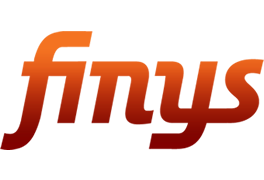A Funny Thing Happened On the Way to the Forum
We had the opportunity to attend the NAMIC Farm Mutual Forum, which took place May 21st to the 23rd in Columbus, Ohio. And a funny thing happened on our way there. We were reading descriptions of the sessions to be conducted over the course of the Forum, and three of them, in particular, jumped out at us:
- Emerging Trends in Farm Technology
- The Benefits and Risks of Cloud Services
- Technology
If you’re anything like us, you realize those three sessions are topically related. In fact, from our perspective, they’re virtually inseparable. Here’s why:
Parts is Parts
To paraphrase a famous Wendy’s commercial, technology is technology. So, while Emerging Trends in Farm Technology cited the implications of GPS, smartphones, RTK positioning, and telemetrics (or telemetry) on the farming industry, we could drop farm from the title of the session and recognize that most industries are equally affected. The insurance industry is no exception.
By the same token, as a topic, The Benefits and Risks of Cloud Services is equally and broadly applicable. That’s why Forbes reported, “Cloud computing is projected to increase from $67B in 2015 to $162B in 2020.” It’s why Microsoft offers Office 365, even against sales of its own Office 2016 software. It’s why most of us use the cloud for file storage and data backup.
And the last session, Technology, included this in its description: “We’ll discuss the importance of technology … how technology applies to all generations … how to develop a technology implementation plan, a company website, social media accounts, and a paperless system.” It’s 2018, kids. If all of us aren’t doing all of those things, we’re not sure where we’ll be. But we’re sure we’ll be behind.
Accept the Inevitable
To his would-be rescuer, Robert Walton, Victor Frankenstein says, “Nothing is so painful to the human mind as a great and sudden change.” Fortunately, technology isn’t a monster (no parts-is-parts pun intended). And it’s not chasing us; although, it is relentless in its evolution. But that evolution constitutes more inevitability than great and sudden change. We’ll either accept and embrace technology, or we won’t. If we don’t, we should lower our expectations for our own evolution accordingly.
We didn’t expect be thinking about all this on the way to the Forum. That’s a funny thing.

